Chickens need to be tested for worms regularly. If there is a build up of worms in their digestive system that can cause health problems. Keeping chickens in a fixed area as so many of us do, where they are grazing the same piece of ground continually is the worst case scenario as they will be contaminating the ground and picking up worm eggs as they are feeding. Infected hens shed thousands of eggs in their faeces onto the ground and so, the problem gets worse.
How can you tell if they need worming? By using a Worm Count Kit! Using a kit means you’re not worming chickens unnecessarily.
Wormers
I use a product containing Flubendazole when necessary to worm my chickens. This is a proven chemical wormer that kill all common worms and their eggs in the chicken and is the only product licensed for use in chickens feed. In between these times, I use Verm-X which has approval for use in Organic systems – now this is a herbal product which works in a different way – you will need to feed this to your hens every month for it to work. The really great thing about Verm-X is that being herbal, it contains many ingredients that are good for your birds so it can improve their overall health.
Good Husbandry
Practising good husbandry techniques is key, in between worming chickens. We try to rotate our birds grazing area every month so that they get some fresh grass but so the ground also gets to rest (this is one of the major principles in Organic farming) and we keep the grass mowed short which allows the ultra-violet light from the sun to reach droppings and kill off worm eggs.
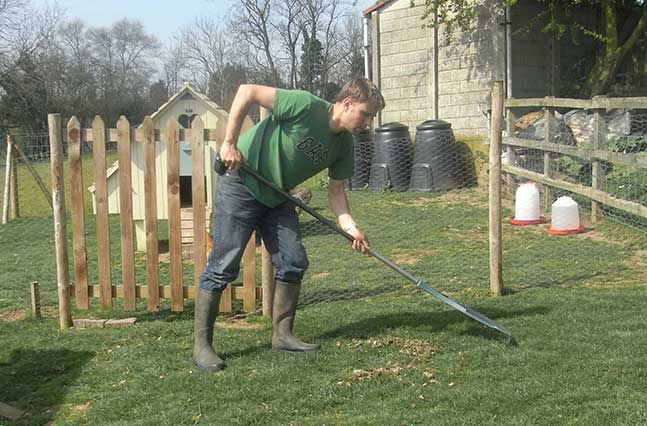
Cleaning a chicken run by raking droppings during dry weather.
General cleanliness is of course important so if your chickens scratch around in their own droppings, you should be thinking about cleaning them up, rather than hitting them with a regular dose of chemicals.
Bad Infestations
If you have a bad infestation of worms, you do need to keep in mind that eggs deposited on the ground will re-infect your birds and it is necessary to repeat the treatment before the eggs hatch and grow into adult worms to lay more eggs. This takes 3 weeks for most common worms carried by chickens so I would re-treat after 3 weeks if I suspect a particularly bad case of worms.
Where external parasites are found on the bird (such as Northern fowl mite or lice) a systemic wormer / pour on product containing Ivermectin is useful. This kills a more limited range of worms. Victoria Roberts Diseases’s of Free Range Poultry says it excludes tapeworm and fluke, but these are less common in chickens. It isn’t licence for use on poultry so you would need to go to your vet for their advice.
Please remember this should not replace the advice of a qualified veterinarian who can advise you about worming.
Do you have any advice on worming? Please leave me a comment below.

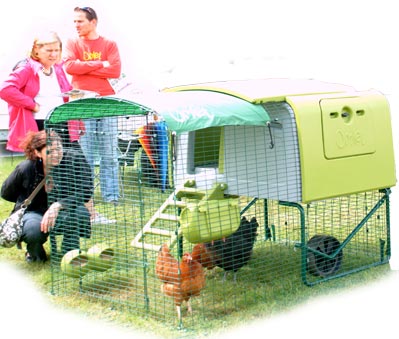

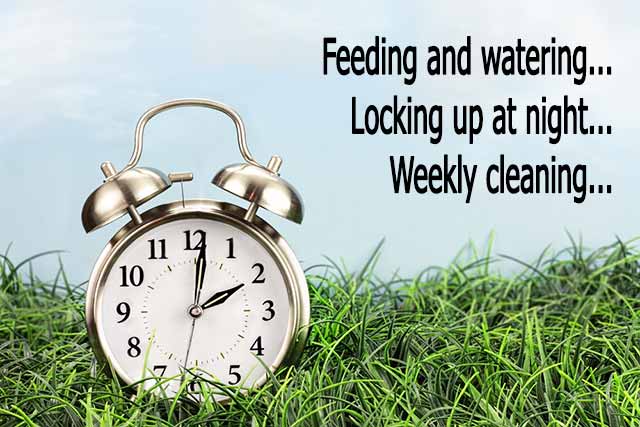
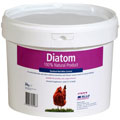
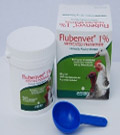
hello firstly grt info
me and my son was wondering can we introduce some chickens to our aviary it has a small area with dirt and plenty of room with branches etc etc ,but what we want to no is can they live alongside our lovebirds who are a healthy mating pair in a enclosed area for mating and some californian qauils and a couple of budgies ,is it safe for health reasons and would chickens hurt any of the other birds thankyou
noel @saxon Barrington.
I haven’t kept these birds together before so don’t really know -For example, Quail might get bullied if there isn’t enough space for them to get away.
Hi,
I have just taken on two Dutch Booted Bantams, one of which has very loose stools. i would like to worm them as a precaution. As Flubenvet is for chickens which are much bigger than my girls, would I need to use the same dose or should it be reduced?
Thanks
Jane
The dose is the same… It is a common confusion but they will get the right dose since they eat less…
Imagine a percentage of flubenvet in the food which stays the same…. But the amount that is eaten varies between birds according to their size.
I have onley three chickens. They all stoped laying on the same day. Do wormes afect laying?
Yes they do.
Help!
I have a black orpington one year old who for many weeks has stayed in her coop, thinking she was broody I thought no more of it, until over a week ago I noticed a strange coughing noise, straining her neck, not eating. Having checked various websites came to the conclusion it may be gapeworm.
Have had 3 trips to the vet who has given her antibiotics and think it may be gapeworm. Struggling to give her a course of Flubenvet for 5 days now as she is not eating much only grass and not drinking much. Has mucus in her mouth and very bad smell. Very worried.
The mucus and smell makes me think it’s more like upper respiritory disease, often, a secondary infection caused by Mycoplasma Gallisepticum. Antibiotics are what the vets usually provide for this (for the Mycoplasma) and you can help her get over the respiritory infection (a cold) by giving ACV in the water (it helps cut through the mucus) and fresh crushed garlic in the water to help her immune system fight it. If caught early enough the antibiotics are usually very effective.
my hens are hybrids and should lay 300 eggs a year, they havent layed an egg in around 3 months each,they are a month old.i feed them what and layers pellets, how much should i feed my chickens per day,how many kg per head? also i havent wormed them before do you think this i the reason?
You should feed pellets or mash ad lib in a hopper. Depending on the hen, they should eat around 140 – 170g per day. It varies with the time of year (they eat more in the cold to keep warm or when moulting for example when they need more protein to replace feathers) and when they are laying. Insufficient protein can stop them laying – some feeds (BOC Farmgate layers for example) also contain grit, so this amount of food would obviously need to increase as some of the weight is made up of grit.